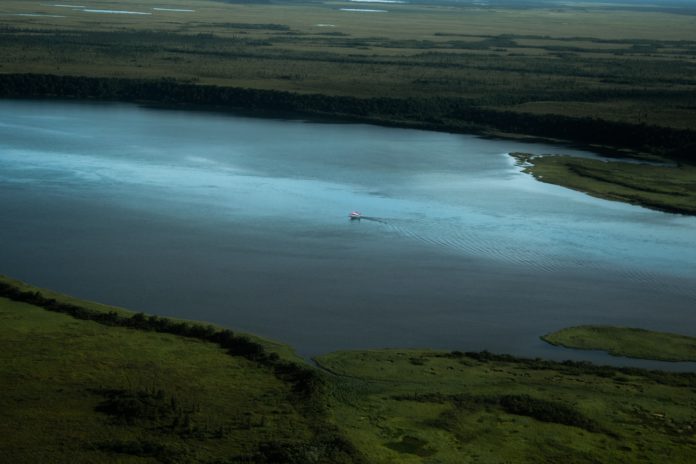Two companies challenging fines and penalties for violations of the Jones Act over Alaska seafood shipped form Dutch Harbor to the east coast of the United States have settled the lawsuit by agreeing to pay $9.5 million, according to court documents.
The agreement, finalized in January, involving Kloosterboer International Forwarding LLC (KIF) and Alaska Reefer Management LLC (ARM), was announced in Anchorage on Feb. 23 by the U.S. Attorney’s office for the District of Alaska. The Jones Act requires that merchandise be transported by U.S. flagged vessels between U.S. ports.
“This is the second largest Jones Act penalty paid in the nation’s history,” said U.S. Attorney S. Lane Tucker.
An exception to the U.S. flagged vessel requirement does allow seafood from Alaska to be transported to the mainland U.S. if it travels via Canadian rail. The defendant companies challenged the penalties and fines in U.S. District Court, saying they did not violate the Jones Act by transporting seafood from Alaska to the U.S. mainland because it was “transported” by Canadian rail.
Court documents show that the defendant firms arranged transportation and related services to move frozen seafood from Alaska to the east coast via maritime shipping. For over a decade both companies moved seafood from Dutch Harbor to a port in New Brunswick, Canada, on foreign-flagged ships. Once in Canada, KIF had the seafood offloaded from the vessel onto trucks at the port. The trucks were then driven onto a flatbed rail car on the Bayside Canadian Railway (BCR), a roughly 100-foot length of railroad track at the Port of Bayside, where they rode the length of the rail and back before being driven off the train cars and proceeding directly to a border crossing in Maine for final transport to the U.S. mainland.
The U.S. Attorney’s office said the BCR was specifically built and exclusively used to move the seafood this way so the companies could claim they met the Canadian rail exception to the Jones Act. U.S. Customs and Border Protection (CBP) investigated the companies’ use of foreign-flagged vessels to transport merchandise this way, including over the BCR. They determined that this was a violation of the Jones Act because using the BCR did not meet the Canadian rail exception. CBP then issued numerous penalty notices to KIF and other companies who were involved in the shipping route, and the companies responded with a lawsuit, contending the Jones Act was not violated and that the penalties were unlawful.
The parties filed for summary judgement in U.S. District Court of Alaska, which ruled that utilization of the BCR for part of the transport of seafood from Alaska to the U.S. mainland was unlawful because there was no actual “transportation” of goods on the BCR, which is a requirement to meet one of the exceptions under the Act.
As part of the settlement agreement the ruling the companies stopped using the BCR to transport seafood to the U.S.















